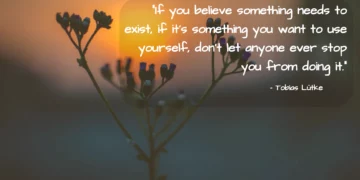Stephen King, the master of horror and suspense, has also offered profound wisdom on the craft of writing. His insights resonate with both budding and seasoned writers, illuminating the path through the often tumultuous landscape of creativity. Below are ten notable quotes from King on writing, each encapsulating his unique perspective and dedication to the art.
“Books are a uniquely portable magic.”
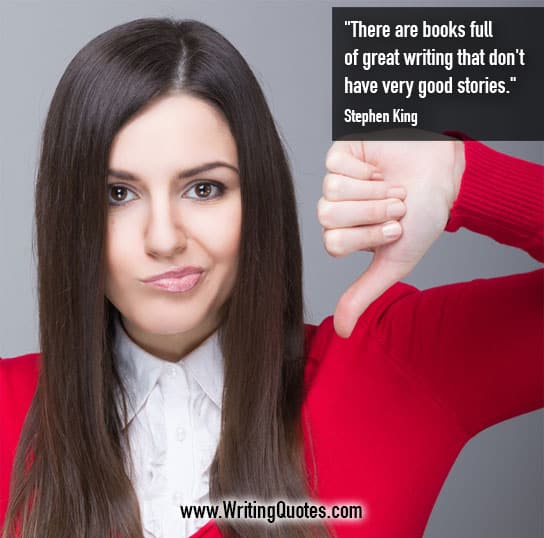
This quote exemplifies King’s belief in the transformative power of literature. The idea that books hold an inherent magic captures the essence of reading and writing, captivating readers and writers alike.
“Writing is a form of telepathy.”
This poignant observation ushers writers into the daunting realm of creativity, reminding them that the initial leap is often the most formidable and crucial step to uncovering their narrative. Here, King articulates the balance between imagination and interpretation. The role of the writer is to spark the reader’s imagination, allowing them to create their own vivid pictures through words. This succinct admonition challenges writers to embrace clarity and directness in prose. King’s advocacy for strong verbs over adverbs crafts more vigorous and compelling narratives. Here, King emphasizes the symbiotic relationship between reading and writing. He implores aspiring writers to immerse themselves in the written word to hone their craft effectively. This motivational mantra serves as a clarion call to those hesitating on the brink of creativity, urging them to summon their courage and embark on their writing endeavors. King acknowledges the emotional weight that accompanies certain truths, reminding writers that vulnerability often gives rise to their most powerful expressions. This quote invites introspection, encouraging writers to craft narratives that not only captivate but resonate deeply with their audience, offering a glimpse of the human experience. King offers a practical approach to writing: embrace solitude during creation, then invite feedback during revision, merging personal vision with collaborative insight.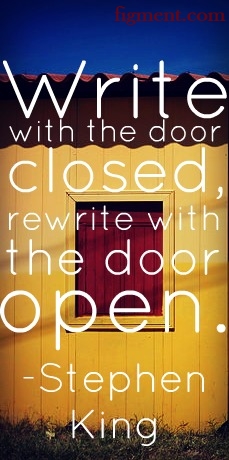
“The scariest moment is always just before you start.”
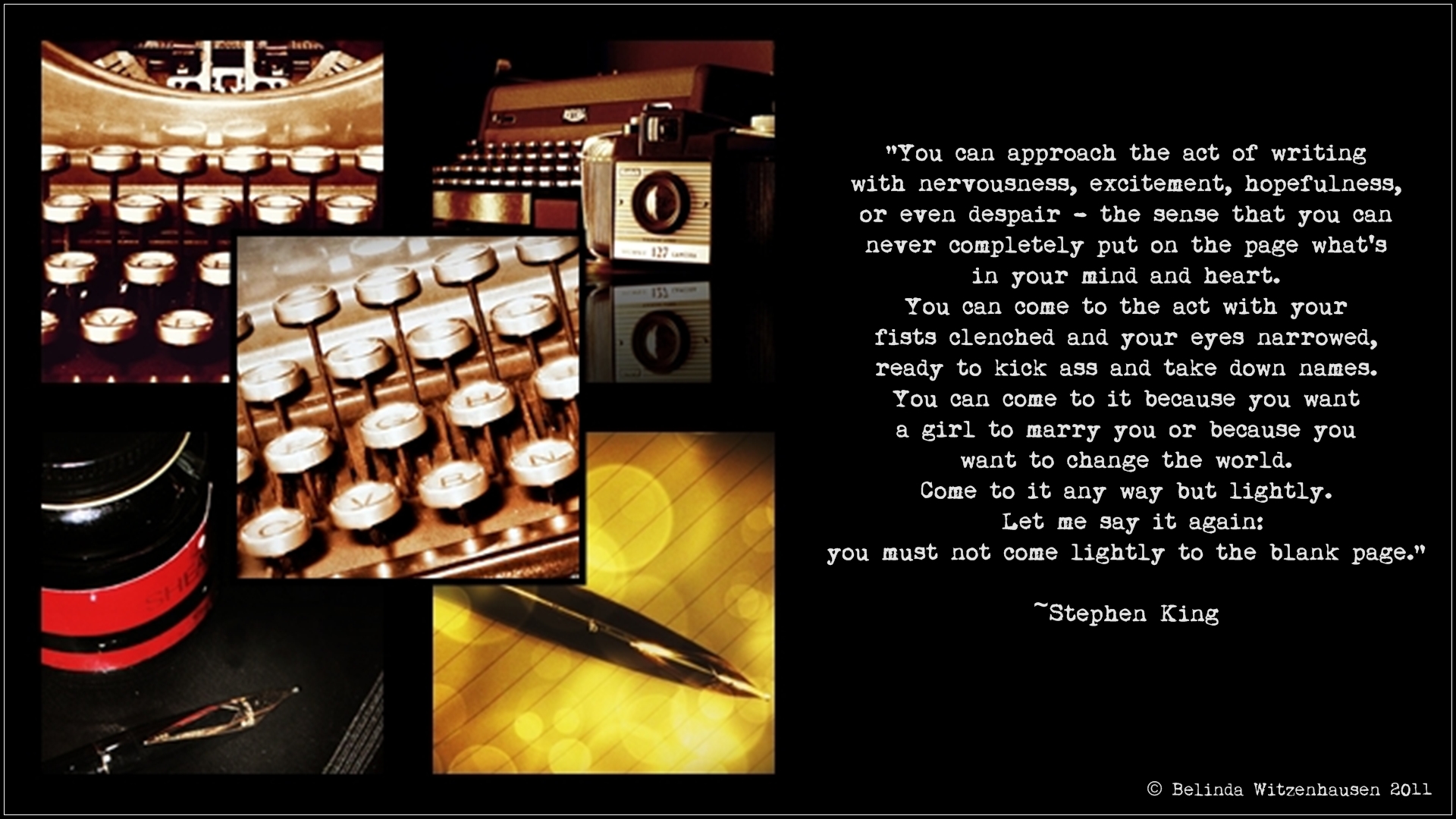
“Description begins in the writer’s imagination, but should finish in the reader’s.”
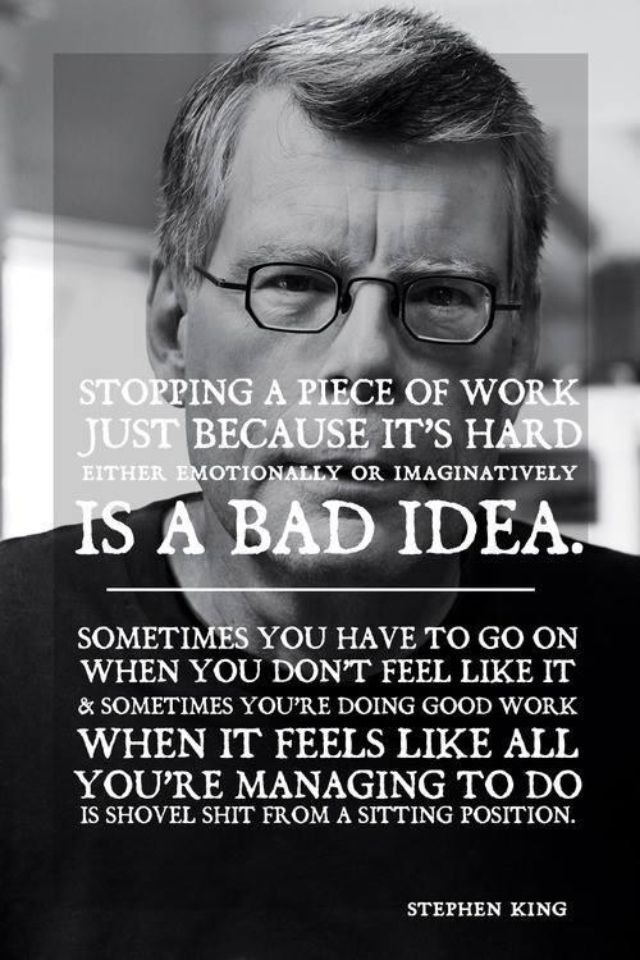
“The adverb is not your friend.”
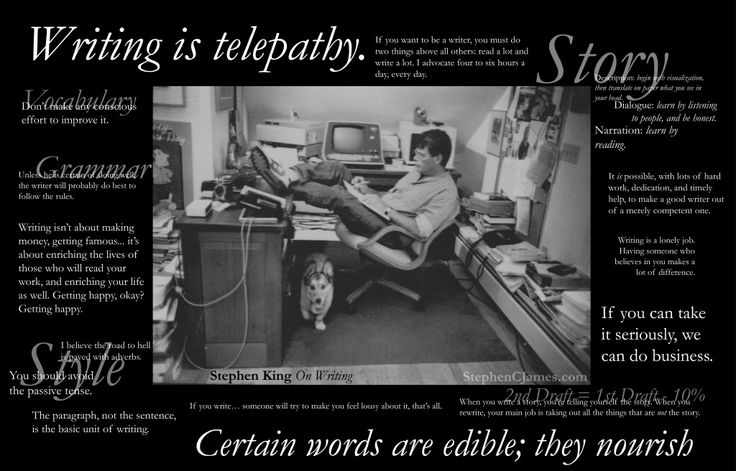
“If you don’t have time to read, you don’t have the time (or the tools) to write.”
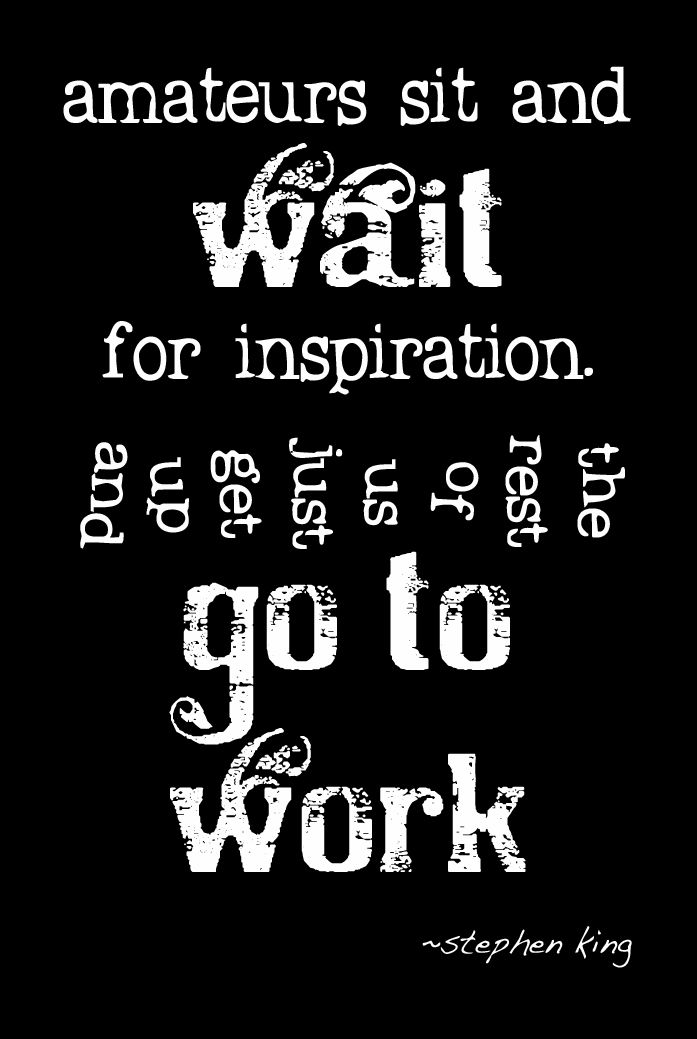
“You can, you should, and if you’re brave enough to start, you will.”
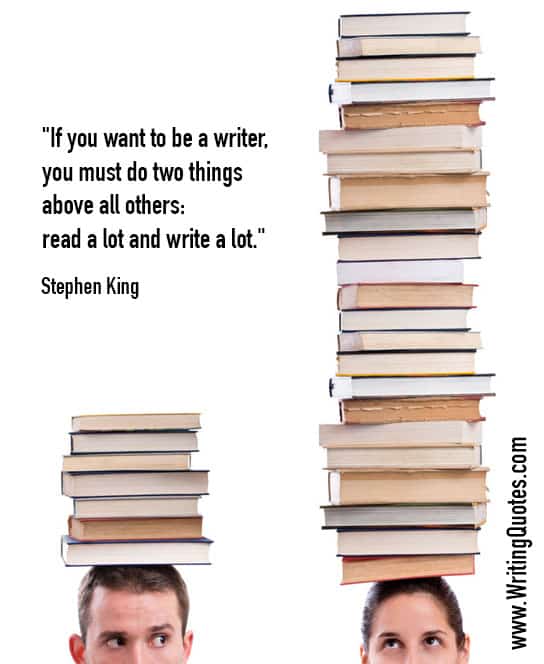
“The most important things are the hardest to say.”
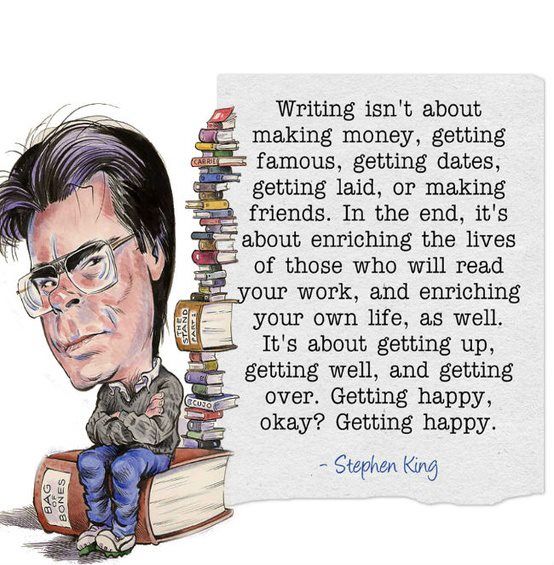
“We are all stories in the end. Just make it a good one.”
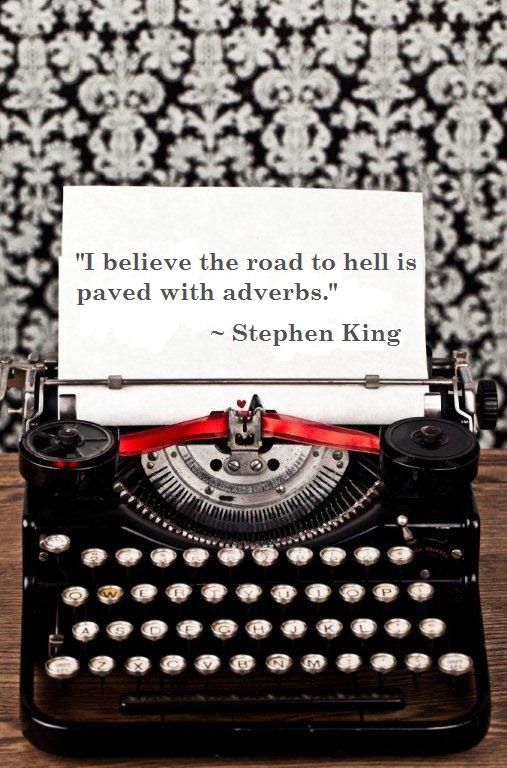
“Write with the door closed, rewrite with the door open.”


